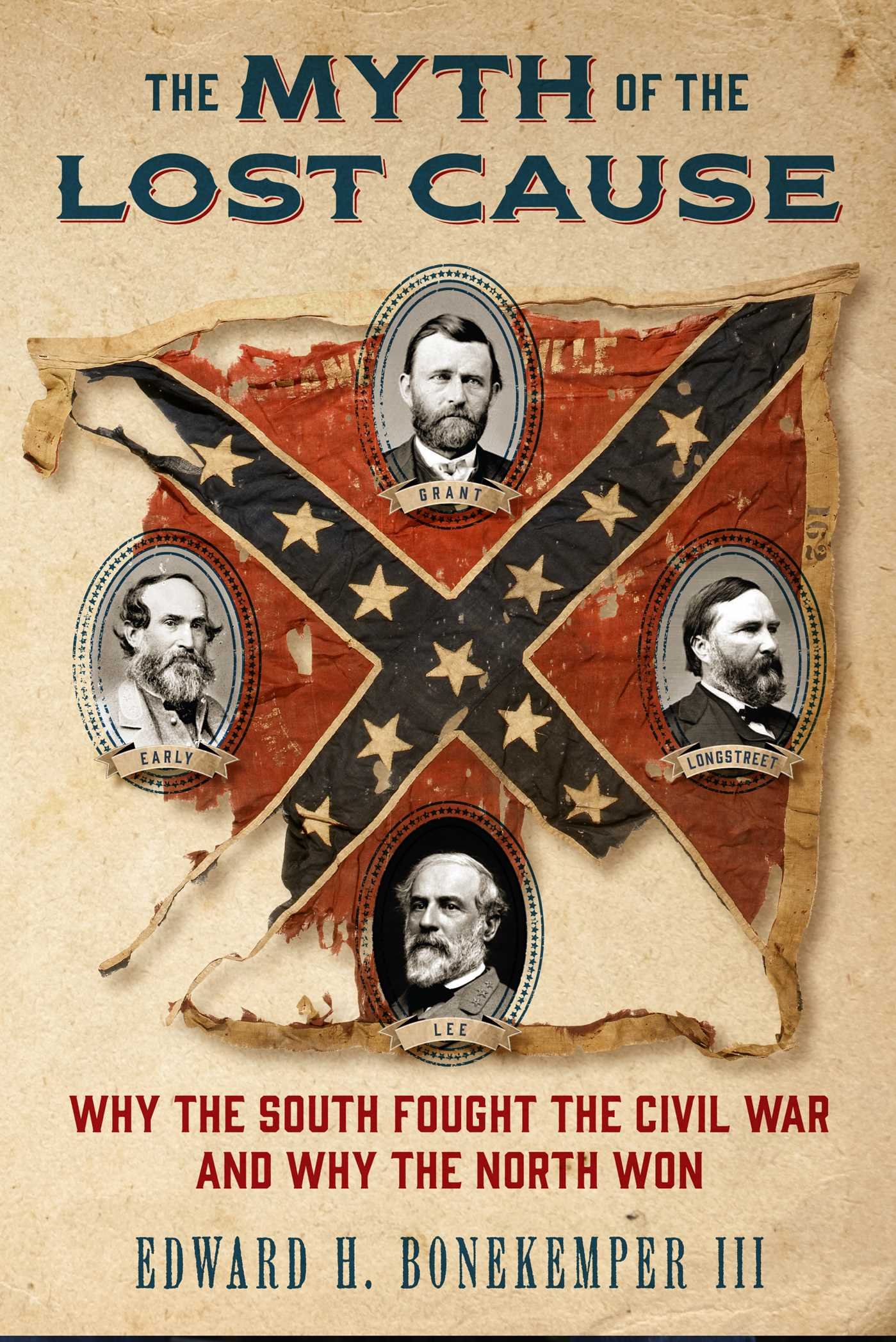Winners write the history of wars. So it is said. Confederate Major General Patrick Cleburne agreed: “Surrender means that the history of this heroic struggle will be written by the enemy; that our youth will be trained by Northern school teachers; will learn from Northern school books their version of the War; will be impressed by all the influences of history and education to regard our gallant dead as traitors, and our maimed veterans as fit subjects for derision.” It did not work out quite that way.
To the contrary, a coterie of disappointed Southerners, aided by many other “conveniently forgetful” and “purposely misleading” comrades, spent three decades after the Civil War creating the Lost Cause Myth. They “nurtured a public memory of the Confederacy that placed their wartime sacrifice and shattering defeat in the best possible light.” They formed the Southern Historical Society 1868–1869 and published fifty-two volumes of papers dealing almost degree” in “shaping how Americans have assessed and understood the Civil War.
Lost Cause Myth Development
The Lost Cause Myth was developed during Reconstruction as shell-shocked and impoverished Southerners tried to rationalize the institution of slavery and the heroic performance of Confederate leaders and soldiers. As W. J. Cash explains,
[I]t is probably no exaggeration to say [Southerners] were to become in Reconstruction years the most sentimental people in history. . . . [The] Southern legend . . . moved, more powerfully even than it moved toward splendor and magnificence, toward a sort of ecstatic, teary-eyed vision of the Old South as Happy-Happy Land. This legend is most perfectly rendered in the tone of Thomas Nelson Page’s Billy as he dreams of the old plantation. And of course, the sentimentality waxed fat on the theme of the Confederate soldier and the cause for which he had fought and died. . . . And men (Western men, at least) have everywhere and eternally sentimentalized the causes of their wars and particularly the causes that were lost. All of them have bled for God and Womanhood and Holy Right; no one has ever died for anything so crass and unbeautiful as the preservation of slavery. But I doubt that the process has ever elsewhere been carried to the length to which it was carried in the South in this time. . . .
The Lost Cause Myth writes Gallagher, “addressed the nature of antebellum Southern society and the institution of slavery, the constitutionality of secession, the causes of the Civil War, the characteristics of their wartime society, and the reasons for their defeat.”10 It originated with Generals Jubal Early and William Nelson Pendleton11 and was promulgated in memoirs, veterans’ reunion speeches, ceremonies at Confederate cemeteries and elsewhere, and Confederate-themed art.
In his analysis of myths surrounding Robert E. Lee, Alan Nolan sees a broader problem: “The distortions of fact that mark the Lee tradition still cannot bring themselves to confront the story of slavery as both lived experience and the central cause of the Civil War.
Another historian, Gordon Rhea, the great-grandson of a Confederate company commander, urges readers to ignore the myths about the war and focus on contemporary evidence:
Our ancestors were unapologetic about why they wanted to secede; it is up to us to take them at their word and dispassionately form our own judgment s about their actions. This is a discussion we Southerners need to have. The Sesquicentennial affords us an opportunity to insist on a fact-based dialogue about the wellsprings of secession, a dialogue based on what the participants said at the time, not what they and their apologists said later to justify their actions to posterity. We are a diverse people with a wide array of opinions. I am very happy that the Confederacy lost the Civil War, and I believe that the Confederacy’s stated goals and ideology should offend the sensibility of anyone living in our times. We ought to be able to look history squarely in the face and call it for what it was. Only by discarding the myths of the past can we move forward to an honest future.
One of the most popular narrative histories of the Civil War continues to perpetuate the Myth of the Lost Cause, laments the historian Michael Dyson: “Let’s be honest: Shelby Foote’s view that Lincoln injected slavery as an issue into the Civil War to gain tactical advantage over the South is just too close for comfort to the idea that all the bloodshed was more about states’ rights than whether we should continue to shackle black humanity. Foote’s Civil War trilogy unabashedly tilted toward the Confederacy and can be read as a monumental brief in behalf of the Southern view of the Late Unpleasantness.”
Part and parcel of the Myth was a deliberate cover-up of the antiblack evils of Reconstruction.
The Lost Cause version of the war is a caricature, possible, among other reasons, because of the false treatment of slavery and the black people. This false treatment struck at the core of the truth of the war, unhinging cause and effect, depriving the United States of any high purpose, and removing African Americans from their true role as the issue of the war and participants in the war, and characterizing them as historically irrelevant. With slavery exorcized, it appeared that the North had conducted itself within the Union so as to provoke secession and then bloodily defeated the secessionists in the war so as to compel them to stay in the Union against their will.
We need to understand the Lost Cause Myth and its deleterious effect on our understanding of historical and social issues that are still important to all Americans.
This article is part of our larger selection of posts about the Civil War. To learn more, click here for our comprehensive guide to the Civil War.
This article is also part of our larger selection of posts about American History. To learn more, click here for our comprehensive guide to American History.
 Would you like to learn the complete history of the Civil War? Click here for our podcast series Key Battles of the Civil War
Would you like to learn the complete history of the Civil War? Click here for our podcast series Key Battles of the Civil War
Cite This Article
"Lost Cause Myth – Why the South Fought, Why the North Won" History on the Net© 2000-2024, Salem Media.
July 27, 2024 <https://www.historyonthenet.com/lost-cause-myth-why-south-fought-why-north-won>
More Citation Information.






